
Episiotomy Care
Episiotomy Care
There are multiple factors that can help ease the pain and the healing process of an episiotomy, including hygiene factors and medication subscribed by the doctor.
An episiotomy is an incision made in the perineum—the area between the anus and the vagina—to enlarge the birth canal when it is considered advisable to avoid tearing your skin during childbirth. Doctors perform this procedure because a tear would be more painful and slower to heal than a surgical cut that is stitched closed.
Recovery from an episiotomy can be the most uncomfortable part of having a child, but there are many things you can do to help ease the pain and help the healing process:
- Use local anesthetic creams and sprays as suggested by your doctor.
- Keep your genital area dry and clean by bathing and changing sanitary napkins frequently.
- Use alcohol swabs after urination and bowel movements to prevent infection and speed healing.
- Take warm baths in plain water.
- Sit on a pillow or use a "donut cushion" made for people with hemorrhoids.
- Put an ice pack on the area as soon after giving birth as possible.
- Be careful not to use ice or heat if your genitals are numb from an anesthetic spray or cream—you won't be able to feel warning sensations if the temperature is too extreme.
- Take painkillers.
Related articles
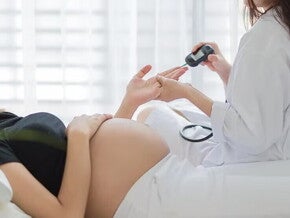
Signs and symptoms of gestational diabetes
Find out who is at risk of gestational diabetes during pregnancy, the symptoms, and helpful tips on healthy habits that lower one's risk of getting gestational diabetes.
3 mins to read

Your Appetite During Pregnancy : Cravings and Aversions
Pregnancy hormones can impact your appetite and sense of taste. Find out how you can manage your appetite and eat well during pregnancy.
3 mins to read

Pregnancy: A Comprehensive Guide
Pregnancy is a distinctive journey shaped by physical, emotional, and practical changes.
4 mins to read

5 reasons to exercise 30 minutes a day during pregnancy
You’re pregnant so you should rest and avoid exercise, right? Wrong! The common notion that exercise during pregnancy might harm your baby has been discredited.
3 mins to read
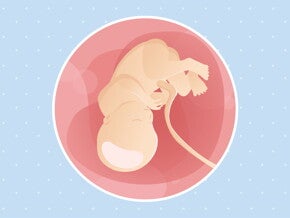
36-week pregnant: baby development and diet tips
From now until she makes her grand entrance, your baby will continue to grow. She is already 45 cm long and weighs about 2.9 kg! Read more about this week.
3 mins to read
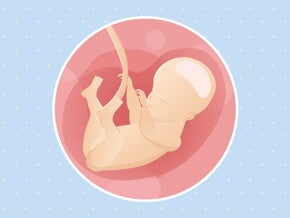
28-week pregnant: baby development and diet tips
Your little one is around 35 cm long from crown to toe and already weights about 1.3 kilos, a third of her birth weight. Her feet measure nearly 6 cm – yes, they are tiny!
2 mins to read
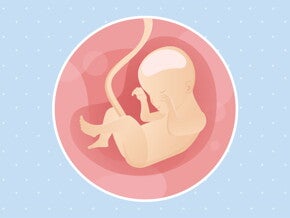
24-week pregnant: baby development and diet tips
Can you feel the baby reacting to noises and your caresses yet? Towards the end of the second trimester is when some women report that this starts to happen, so be on the lookout.
3 mins to read

2'-FL – Natural Guardians of Your Baby’s Development
Your little ones need extra protection in early life as their natural defence systems are not fully developed at birth.
3 mins to read

Going back to work after maternity leave? Keep these 5 things in mind…
For working mums, juggling motherhood and work life may be overwhelming. By planning, practising these tips, and taking a day at a time, you'll be able to manage your day and emotions better.
8 mins to read
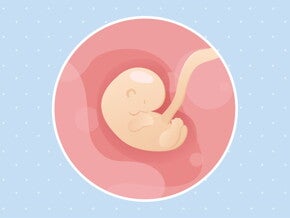
6-week pregnant: baby development and diet tips
Your baby’s growth is in overdrive right about now. So many exciting developments on such a tiny little being! Read more about this week.
2 mins to read
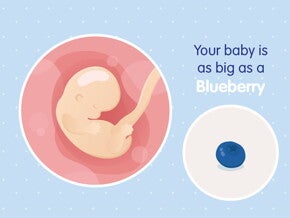
7-week pregnant: baby development and diet tips
Your baby is already a pretty impressive 18 mm long. Though you won’t feel it yet, she’s on the move. Read more about this week.
2 mins to read
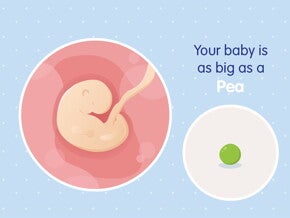
5-week pregnant: baby development and diet tips
Though only around the size of a pea, your baby is growing by leaps and bounds. Relatively speaking! Read more about this week.
2 mins to read
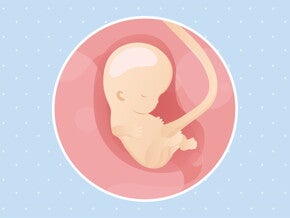
9-week pregnant: baby development and diet tips
Two hearts beat as one, as the song says. In actual fact, your baby’s heart is beating just fine on its own. Read more about this week.
3 mins to read

6 Types of childbirth and how to get yourself ready for it
Learn about the various delivery options for you and your partner to best prepare for the process and to welcome your bundle of joy.
7 mins to read
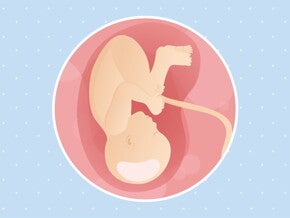
38-week pregnant: baby development and diet tips
Two more weeks! Yes, it’s true, you and your little one will soon be making each other’s acquaintance. Everything is pretty much in place. Read more about this week.
3 mins to read
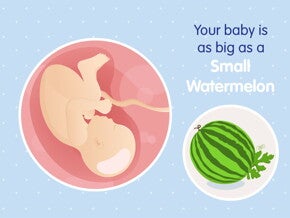
39-week pregnant: baby development and diet tips
You might have felt a few contractions already and were wondering if that was “it”. Don’t worry, you won’t miss the start of labour! Read more about this next to last week.
3 mins to read
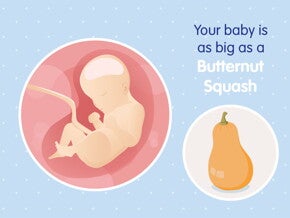
29-week pregnant: baby development and diet tips
As you inch your way towards the finish line – you will be giving birth in about ten weeks! – your baby is still growing by leaps and bounds, even opening her eyes wide now. Read more about it.
2 mins to read
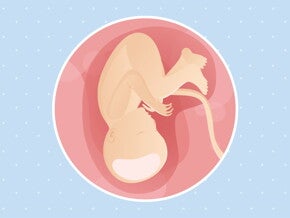
37-week pregnant: baby development and diet tips
Your baby tends to keep his head down, arms crossed, and legs folded up on his chest as there’s not much room to move around. He’ll be very glad to get out and stretch!
3 mins to read
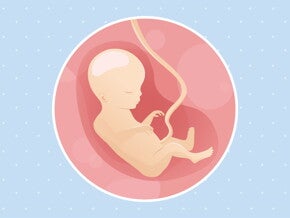
18 weeks pregnant: baby development and diet tips
Lots of leaps and bounds are happening in week 18, from nerve cells multiplying to the beginnings of fingerprints. Read more about this week.
3 mins to read